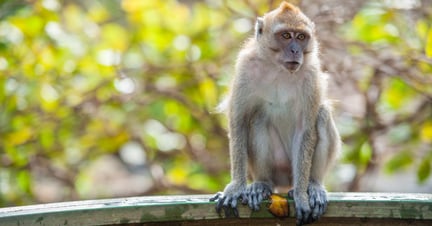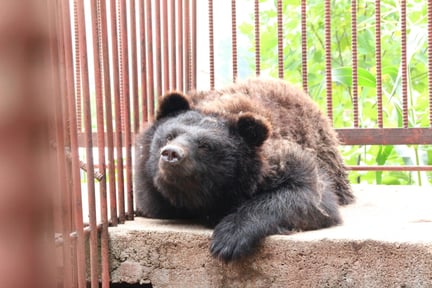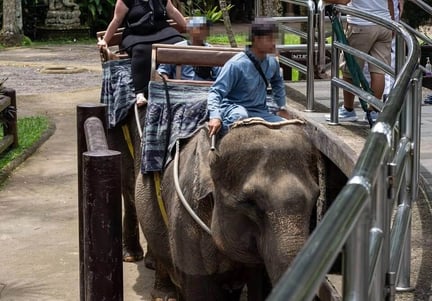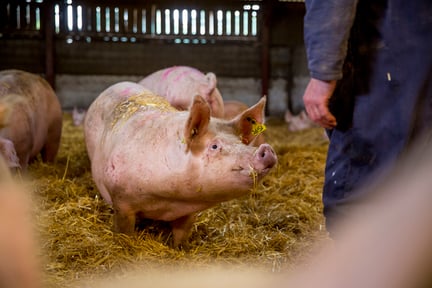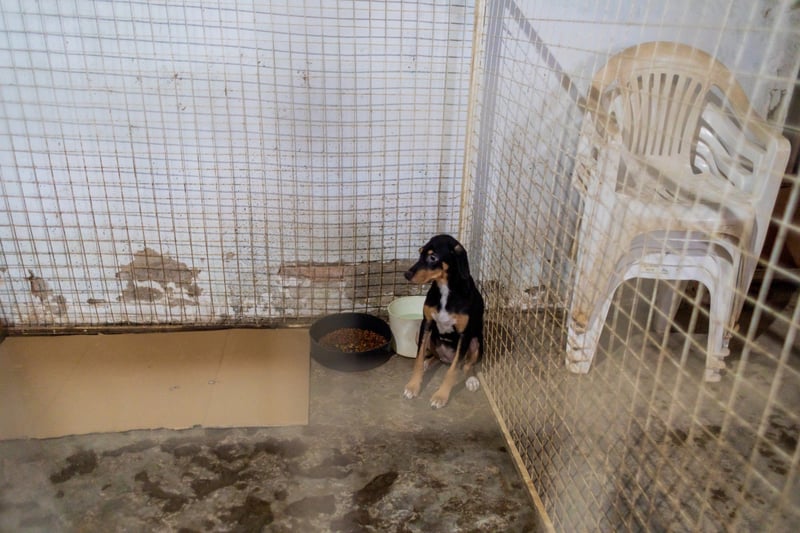
Animal Suffering: Facebook Tops The Chart For Cruel Content
Press release
New data shows social media giant removed only a third of flagged content
New data released today exposes that shocking and harmful animal abuse content is rife on social media platforms, with Facebook containing the most animal abuse content.
Meta-owned Facebook accounts for 87.5% of all cruelty-related links reported by the public to The Social Media Animal Cruelty Coalition (SMACC), a collective of 34 animal protection organisations, including World Animal Protection. Throughout 2024, 80,972 links were identified by the public and assessed by the coalition.
Monkeys, cats, and dogs are among the animals subject to online cruelty, with endangered species such as orangutans, gorillas, and long-tailed macaques subject to torture and cruelty.
Key findings:
- Combined with Instagram, the public has submitted over 71,000 links on META platforms featuring animal cruelty;
- On Facebook, 'monkey hatred' emerges as the leading theme, representing 33.4% of all reported links. On Instagram, 33.8% of reported content falls under the theme of 'wild animals as pets'.
SMACC researchers collected a separate set of data with more details:
2,050 links were collected and analysed—1,094 from Facebook and 39 from Instagram—confirming that more than half of the total originate from Meta platforms. Of the 1,133 Meta links, only 36.3% have been removed;
On Facebook, 24.5% of content is categorized as ‘deliberate physical torture’, while Instagram more frequently hosts content portraying ‘animals as entertainers’ (35.9%);
From a species perspective, we identified 53 types of animals, with a total of 962 individuals on Facebook and 40 on Instagram. At least 108 of these individuals belong to the International Union for Conservation of Nature (IUCN) listed species, including:
- orangutans and gorillas (Critically Endangered);
- long-tailed macaques, chimpanzees, and lion-tailed macaques (Endangered);
- cheetahs, lions, and stump-tailed macaques (vulnerable).
- A further 33 animal types are listed as ‘species-dependant,’ suggesting a potentially higher total of IUCN-affected animals;
- Most commonly, primates (especially macaques), dogs, and cats are featured in this cruel content.
Despite social media platforms implementing policies against such content, the data demonstrates gaps in identifying and removing the flagged content.
Online animal cruelty is increasingly being recognized within global legal frameworks. The legislative landscape around digital safety is rapidly evolving, with governments placing more defined responsibilities on platforms to mitigate online harms, including animal cruelty. Under the UK’s Online Safety Act 2023, animal cruelty is classified as priority illegal content. Platforms are required to proactively detect and swiftly remove such material, with non-compliance resulting in fines of up to £18 million or 10% of global annual revenue, enforced by Ofcom.
Similarly, the EU’s Digital Services Act (DSA), which came into force in February 2024, obligates platforms to provide effective reporting mechanisms for illegal content, act promptly upon notification, conduct risk assessments, and undergo regular, independent audits. Penalties for failing to meet these obligations can reach 6% of global turnover. These laws are setting new standards for digital accountability, and other countries are expected to adopt similar frameworks. For example, Taiwan’s Animal Protection Act now explicitly requires social media platforms to cooperate with law enforcement and ensure transparency in investigations involving online animal cruelty.
Tricia Croasdell, CEO of World Animal Protection, said, “It’s important that social media companies take this seriously and look at improving content moderation systems and enforcement policies.
“Policies should explicitly define and prohibit all forms of animal cruelty and ensure stronger enforcement, especially against repeat offenders and organized abuse networks.
Animals deserve better. We must keep reporting this content to the social media platforms. We do not ignore cruelty or abuse.
This data comes ahead of Report It! Week (23-30 May) dedicated to raising global awareness about online animal cruelty and reinforcing a powerful message on the importance of reporting this type of content to social media platforms.
Report It! Week will drive the message that reporting matters. By raising awareness, we aim to influence social media users and companies to stop overlooking this cruelty.
ENDS
Notes to Editors:
To organise an interview or speak to a spokesperson, please contact:
Global Media Manager, Angela Stevenson.
Email angelastevenson@worldanimalprotection.org
Images are available for use.
Regarding image use: We are happy to share links and images as necessary. However, we request that any identifying features be removed before publishing. We wish to raise awareness of the issue but not direct people to the offending content/pages, as we do not want to increase traffic and engagement. We request that no links be published, no names of pages or creators be published, and all images be cropped to remove identifying features.
PLATFORM POLICIES
- In March 2021, YouTube updated their policy to prohibit “content that shows animal rescue that is staged and puts the animal in harmful scenarios”.
- Meta released a new policy in early 2023 prohibiting fake or staged rescue content on its platforms.
About World Animal Protection
World Animal Protection is the global voice for animal welfare, with more than 75 years of experience campaigning for a world where animals live free from cruelty and suffering. We have offices in 12 countries and work across 47 countries. We collaborate with local communities, the private sector, civil society, and governments to change animals’ lives for the better.
